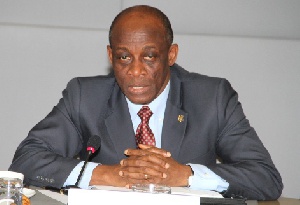The Institute for Fiscal Studies (IFS), an economic think tank, says the country’s economic crisis is expected to continue in 2015 and the medium-term if additional measures are not introduced to support fiscal consolidation and ensure macroeconomic stability to reverse the declining growth.
In its recent review of the 2015 Budget, it said fiscal consolidation has to focus on credible and effective rationalization and rebalancing of expenditure, as well as enhancing significantly domestic revenue.
It called for a strong fiscal adjustment in the short term and also a structural transformation over the medium to long-term to address the country’s economic ongoing crisis.
“However, the 2015 budget presented in November 2014, with theme “transformation agenda: securing the bright medium term prospects of the economy” did not go far to address the crisis.
“This is because the budget responses were sketchy and also lacked transformational ambition.
The budget did not provide details of the drivers of the transformation process and the expected outcomes.”
It stated that although the budget outlined some tax policy and the expenditure management measures, these too did not go far enough.
Ghana is currently facing serious economic crisis. The country is experiencing a rapidly declining economic growth, double-digit deficits for two years running, high account deficits and a public debt stock which is almost above the sustainable threshold.
The domestic currency witnessed a rapid depreciation in the first three-quarters of 2014 amid dwindling foreign reserves, and inflation which has crawl back to double digits since January 2013.
It has been difficult in the past for government to undertake strong fiscal adjustment on its own without an IMF programme.
This state of affair cannot continue forever. Ghana has to muster courage and discipline to undertake the needed fiscal adjustment on its own.
Closing the fiscal gap will send the right signal to investors and donors and ensure inflow of more resources to the country.
It will also help stem the emerging debt crisis by slowing the pace of borrowing and the resultant current rising debt serving costs.
Business News of Tuesday, 10 February 2015
Source: Daily Guide
IFS predicts continued economic hardship
Entertainment
















